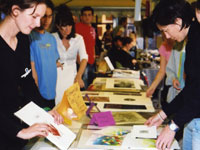Nineteenth-Century Europe: Between Revolution and War - ARTS2273
Faculty: Faculty of Arts and Social Sciences
School: School of Humanities and Languages
Course Outline: School of Humanities & Languages
Campus: Sydney
Career: Undergraduate
Units of Credit: 6
EFTSL: 0.12500 (more info)
Indicative Contact Hours per Week: 3
Enrolment Requirements:
Prerequisite: 30 units of credit at Level 1; or 24 units of credit and enrolment in a History extended minor in Arts/Education (4053)
CSS Contribution Charge: 1 (more info)
Tuition Fee: See Tuition Fee Schedule
Further Information: See Class Timetable
Available for General Education: Yes (more info)
View course information for previous years.
Description
Subject Area: History
This course can also be studied in the following specialisation: European Studies
From Napoleon's empire to the eve of World War 1 Europeans experienced profound changes: the economy was transformed, social divisions generated intense awareness of class interests, and millions of people migrated in search of a better life, often outside Europe altogether. The nineteenth century also saw the dramatic expression of new ideals that promised a better future for humanity: liberalism, nationalism, socialism, feminism, conservatism, romanticism. Developments in Europe's urban environment had both positive effects (e.g. public health, consumer goods) and negative impacts (e.g. slums and crime). Yet this was also an age of colonialism, imperialism and militarisation. Even at the dawn of the twentieth century most Europeans were still peasants who tilled the soil and tended their animals. This course raises and discusses many of these issues during the 1800s, and concludes by asking: How do we explain both change and continuity?









